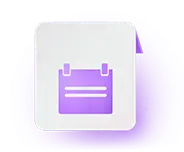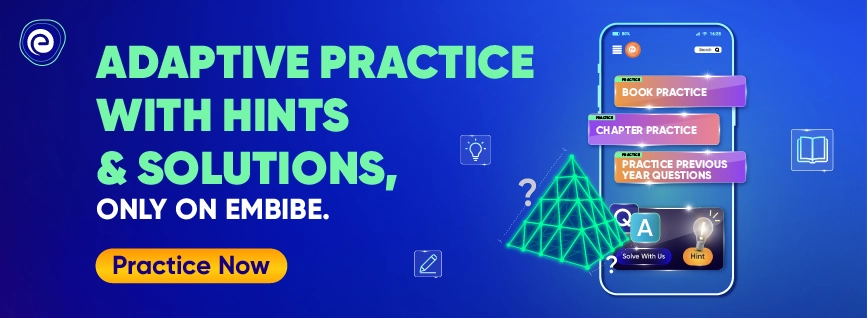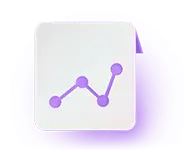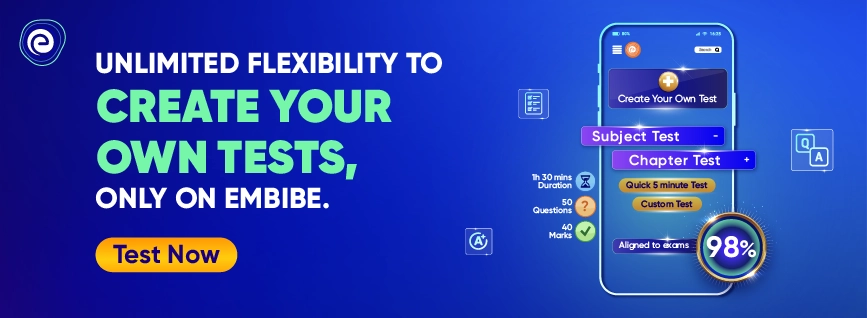- Written by gnanambigai
- Last Modified on 29-07-2025
West Bengal Board Class 6 Exam 2025
The West Bengal Board of Secondary Education (WBBSE) is an autonomous organisation run by the state government. The WBBSE’s primary duty is to examine and formulate rules, regulations, and guidelines for secondary school-level examinations in West Bengal, India. Secondary education in West Bengal begins in Class 6 and ends with a board exam in Class 10. The different schools administer the West Bengal Board Class 6 to 9 exams following the board’s standards.
As a result, each school will perform Formative Assessment (FA) and Summative Assessment (SA) for the 6th, 7th, 8th, and 9th grades under the board’s recommendations. As a result, the West Bengal Board Class 6 test is held at the school level for each student, following the West Bengal Board of Secondary Education’s syllabus, guidance, and evaluation system.
West Bengal Board Class 6 Exam Summary 2025
The West Bengal Board Class 6 exam is conducted internally by individual schools. All the schools affiliated with the West Bengal Board of Secondary Education follow the curriculum prescribed the the Board. Students are required to study the chapters covered in the syllabus for their final exam. They need to study any topics outside their syllabus. Below is a brief overview of the West Bengal Board Class 6 exam:
| Particulars |
Details |
| Board Name |
West Bengal Board of Secondary Education |
| Short Form |
WBBSE |
| Exam |
Class 6 |
| Exam Frequency |
Annual |
| Exam Date |
March/April, 2025 |
| Subjects |
First Language, Second Language, Maths, Science, Social Science, Health and Physical Education |
| Marks |
100 |
West Bengal Board Official Website
wbbse.wb.gov.in
West Bengal Board Class 6 Syllabus
The syllabus for all the subjects for Class 6 West Bengal Board of Secondary Education is available in the Bengali Language. Moreover, West Bengal Board Class 6 Bengali Book Solutions are also available. Check Here. Students can also watch the Embibe 3D videos to understand their WBBSE Class 6 chapter topics through animation.
West Bengal Board Class 6 English Syllabus
West Bengal Board of Secondary Education (WBBSE) defines the Class 6 English syllabus. It is for developing their reading, listening, and speaking skills. Students must adhere to the syllabus if they want to perform well in the exam. Check out the West Bengal Board Class 6 English Syllabus Textbook ‘Blossoms’ in the table below:
| Skill |
Details |
| Competency: developing listening and speaking skills |
– Listening to poems for pleasure and appreciation; listening to stories for comprehension, interpreting various information and developing essential values of life; following instructions for performing activities
– Reciting poems for a joyful experience, developing pronunciation, stress, accent and intonation; participating in role-playing; constructing a story with the help of word/picture cues and telling the story to the class; participating in a conversation discussing with peers about an imaginary situation; narrating a personal experience/event; describing a person/object/experience the learner likes most as mentioned in the story/poem |
| Competency: developing reading skills |
– Reading poems of world literature composed by Christina Rossetti, Katherine Pyle, Joseph Campbell, Kate Louise Brown, etc. for comprehension, appreciation and linguistic purposes
– Reading stories of fantasy and imagination of various eminent writers of world literature like Charles Dickens, H.G. Wells, Enid Blyton, Washington Irving etc. for pleasure reading, comprehension and appreciation; reading comic strips (c.g. The Land of The Pharaohs) for enjoyment, comprehension and knowledge construction |
| Competency: developing writing skills |
Writing a paragraph describing personal experience, encoding and decoding information (reinforcement); writing a dialogue; writing a Story |
| Competency: developing functional skills (grammar and vocabulary) |
– Identifying and using abstract nouns, collective nouns, auxiliary verbs, an appropriate verb in agreement with the subject, functional adverbs, prepositions, linkers (reinforcement) and punctuations (reinforcement) in meaningful sentences; differentiating between countable and uncountable nouns, various types of functions of sentences, common and proper nouns(reinforcement), personal pronouns and possessive pronouns(reinforcement)
– Solving a crossword puzzle with the help of word cues; identifying, matching, substituting and making sentences with synonyms and antonyms, adding prefixes/suffixes for constructing opposite words |
| Competency: developing critical thinking and creative skills |
– Observing and identifying different actions and comparing, contrasting and analysing their features, exploring the theme of the story stated by interpreting a given picture
– Making a model of the Earth, pyramid and exploring their features; making puppets and performing a puppet-show; drawing a picture of a particular incident/ character mentioned in the text and discussing with peers analysing their features; making a scrap-book with pictures of important personalities and pointing out their contributions |
Here is the West Bengal Board Class 6 English Syllabus for First Sumative Evaluation and Second Summative Evaluation in the table below:
| Chapter No |
Details |
| First Sumative Evaluation: 15 marks (April) |
| 1 |
Revision Lesson ( approx. 16 periods) |
| 2 |
Lesson 1: It all began with Drip-Drip ( approx.20 periods) |
| 3 |
Lesson 2: The Adventurous Clown ( approx.18 periods) |
| 4 |
Lesson 3: The Rainbow ( approx.10 periods) |
| Second Summative Evaluation: 25 Marks (August) |
| 5 |
Lesson 4: The Shop that never Was ( approx.20 periods) |
| 6 |
Lesson 5: Land of the Pharaohs ( approx.16 periods) |
| 7 |
Lesson 6: How the little kite learned to Fly ( approx.10 periods) |
| 8 |
Lesson 7: The Magic Fish Bone ( approx.18 periods) |
| 9 |
Lesson 8: Goodbye to the Moon (approx. 20 periods) |
| Third Summative Evaluation: 70 marks (December) |
| 10 |
Lesson 9: I will go with my Father a-ploughing (approx. 10 periods) |
| 11 |
Lesson 10: Smart ice-Cream ( approx. 10 periods) |
| 12 |
Lesson 11: The Blind Boy ( approx. 10 periods) |
| 13 |
Lesson 12: Rip Van Winkle ( approx. 10 periods) |
| Lessons 1 – 8 are to be included in the Third Summative Evaluation |
West Bengal Board Class 6 Mathematics Syllabus
Mathematics is one of the subjects that students find difficult to understand. But the Mathematics syllabus is designed to make the students aware of the Mathematical terms, theories and formulas. To get good score in the Mathematics exam, students must go through the West Bengal Board Class 6 Mathematics syllabus given below:
| Chapter No |
Chapter Name |
Details |
| 1 |
Knowing Our Numbers |
(i) Introduction
(ii) Comparing Numbers
(iii) Large Numbers in Practice
(iv) Using Brackets
(v) Roman Numerals |
| 2 |
Whole Numbers |
(i) Introduction
(ii) Whole Numbers
(iii) The Number Line
(iv) Properties Of Whole Numbers
(v) Patterns in Whole Numbers |
| 3 |
Playing With Numbers |
(i) Introduction
(ii) Factors and Multiples
(iii) Prime and Composite Numbers
(iv) Test For Divisibility Of Numbers
(v) Common Factors and Common Multiples
(vi) Some More Divisibility Rules
(vii) Prime Factorisation
(viii) Highest Common Factor
(ix) Lowest Common Multiple
(x) Some Problems with HCF and LCM |
| 4 |
Basic Geometrical Ideas |
(i) Introduction
(ii) Points
(iii) A Line Segment
(iv) A line
(v) Intersecting Lines
(vi) Parallel Lines
(vii) Ray
(viii) Curves
(ix) Polygons
(x) Angles
(xi) Triangles
(xii) Quadrilaterals
(xiii) Circles |
| 5 |
Understanding Elementary Shapes |
(i) Introduction
(ii) Measuring Line Segments
(iii) Angles-‘Right’ and ‘Straight’
(iv) Angles- ‘Acute’, ‘Obtuse’ and ‘Reflex’
(v) Measuring Angles
(vi) Perpendicular Lines
(vii) Classification of Triangles
(viii) Quadrilaterals
(ix) Polygons
(x) Three Dimensional Shapes |
| 6 |
Integers |
(i) Introduction
(ii) Integers
(iii) Addition of Integers
(iv) Subtraction of Integers with the help of a Number Line |
| 7 |
Fractions |
(i) Introduction
(ii) A Fraction
(iii) Fraction on the Number Line
(iv) Proper Fractions
(v) Improper and Mixed Fractions
(vi) Equivalent Fractions
(vii) Simplest Form of a Fraction
(viii) Like Fractions
(ix) Comparing Fractions
(x) Addition and Subtraction of Fractions |
| 8 |
Decimals |
(i) Introduction
(ii) Tenths
(iii) Hundredths
(iv) Comparing Decimals
(v) Using Decimals
(vi) Addition of Numbers with Decimals
(vii) Subtraction of Decimals |
| 9 |
Data Handling |
(i) Introduction
(ii) Recording Data
(iii) Organisation of Data
(iv) Pictograph
(v) Interpretation of a Pictograph
(vi) Drawing a Pictograph
(vii) A Bar Graph |
| 10 |
Mensuration |
(i) Introduction
(ii) Perimeter
(iii) Area |
| 11 |
Algebra |
(i) Introduction
(ii) Matchstick Patterns
(iii) The Idea Of A Variable
(iv) More Matchstick Patterns
(v) More Examples of Variables
(vi) Use Of Variables in Common Rules
(vii) Expressions with Variables
(viii) Using Expressions Practically
(ix) What is an Equation?
(x) Solution of an Equation |
| 12 |
Ratio And Proportion |
(i) Introduction
(ii) Ratio
(iii) Proportion
(iv) Unitary Method |
| 13 |
Symmetry |
(i) Introduction
(ii) Making Symmetric Figures: Inkblot Devils
(iii) Figures With Two Lines of Symmetry
(iv) Figures with Multiple Lines of Symmetry
(v) Reflection and Symmetry |
| 14 |
Practical Geometry |
(i) Introduction
(ii) The Circle
(iii) A Line Segment
(iv) Perpendiculars
(v) Angles |
West Bengal Board Class 6 Science Syllabus
The Science syllabus is not very vast and simple. It helps the students learn how our world functions because of Science. It reveals the scientific world to students with real-life examples. To pass the exam with high scores, the student must study the chapters and topics in the West Bengal Board Class 6 Science syllabus mentioned in the table below:
| Sl. No |
Chapter Name |
Details |
| 1 |
Interdependence of organisms and environment |
Man and other animals depend on plants, Dependence of plants on animals, Nature of the relationship of one Living Organism with another, Dependence of Man on Animals, Microbes we depend upon |
| 2 |
Phenomena around us |
Reversible, Irreversible phenomena, Periodic, Nonperiodic phenomena, Desirable, Underiavable Phenomena, Natural, Man-made phenomena, Slow and fast phenomena, Features of physical and Chemical Changes, Changes and Energy, More instance of physical and Chemical Changes |
| 3 |
Element, Compound and Mixture |
Metals and non-metals, Pure substance and Mixture, Element and Compound, Symbol, Formula and Valency, Various mixtures, Process of separating components of a mixture |
| 4 |
Rocks and Minerals |
Different types of Rock, Minerals and Ore, Alloys, Fossils, Fossil Fuel |
| 5 |
Measurement |
The Necessity of Measurement in Our Daily Life and Units of Measurement, Length, Area, Volume, Mass and time, Measurement of plant and Animal Growth |
| 6 |
Primary Concept of Force and Energy |
Concept of Rest, Motion and Energy, Concept of Force and its unit, Force without Touch, Concept of Energy, its different forms, Transformation, Source, Concept of Energy flow and energy crisis Frictional force in our Daily Life |
| 7 |
Statics Dynamics of Fluid (Liquid and Gas) |
Concept of pressure, Effect of pressure, The concept of Bernoulli’s principle |
| 8 |
The Human Body |
Heart, Blood, Lungs, Bones, Bone-joints and muscles, The Growth and Development of Human Body |
| 9 |
Common Machine |
Introduction to Machines, Lever, Concept of an inclined plane, Screw, Pulley, Wheel and Axle, Maintenance of Machine |
| 10 |
Biodiversity and its classification |
Concept of Species, Classification of Living Organisms |
| 11 |
Habit and Habitat of some important Animals |
Behavioural Science and Behavioural Scientists, The habits and behaviour of some animals |
| 12 |
Waste Producer |
Waste product: Origin and Nature, Classification of waste products, Reusing waste products |
West Bengal Board Class 6 Exam Blueprint
All the students are generally promoted to the next higher class after passing through the different stages of Summative and Formative assessment throughout the year. Suppose a student scores below 25% either in Summative Evaluation or in Formative Evaluation, or both of them. In that case, the student is given one month to improve in all the areas (both Summative and Formative) and evaluated again. This process is repeated until the student improves sufficiently to score 25% plus and be promoted to the next higher class.
Hence, the upgrading system to the next higher class 7 applies to all the grade 6 students studying under the West Bengal Board of Secondary Education.
For each subject, there are Summative Evaluation and Formative Evaluation three times a year as shown in the following schedule with the distribution of marks:
| Subject |
Type of Evaluation |
Marks |
Time schedule |
| First Language – Bengali |
First Summative Evaluation |
15 |
April |
| Internal Formative Evaluation |
100 |
April |
| Second Summative Evaluation |
25 |
August |
| Internal Formative Evaluation |
100 |
August |
| Third Summative Evaluation |
70 |
November/ December |
| Internal Formative Evaluation |
100 |
November/ December |
| Second Language – English |
First Summative Evaluation |
15 |
April |
| Internal Formative Evaluation |
100 |
April |
| Second Summative Evaluation |
25 |
August |
| Internal Formative Evaluation |
100 |
August |
| Third Summative Evaluation |
70 |
November / December |
| Internal Formative Evaluation |
100 |
November / December |
| Mathematics |
First Summative Evaluation |
15 |
April |
| Internal Formative Evaluation |
100 |
April |
| Second Summative Evaluation |
25 |
August |
| Internal Formative Evaluation |
100 |
August |
| Third Summative Evaluation |
70 |
November / December |
| Internal Formative Evaluation |
100 |
November / December |
| Science and Environment |
First Summative Evaluation |
15 |
April |
| Internal Formative Evaluation |
100 |
April |
| Second Summative Evaluation |
25 |
August |
| Internal Formative Evaluation |
100 |
August |
| Third Summative Evaluation |
70 |
November / December |
| Internal Formative Evaluation |
100 |
November / December |
| Geography and Environment |
First Summative Evaluation |
15 |
April |
| Internal Formative Evaluation |
100 |
April |
| Second Summative Evaluation |
25 |
August |
| Internal Formative Evaluation |
100 |
August |
| Third Summative Evaluation |
70 |
November / December |
| Internal Formative Evaluation |
100 |
November / December |
| History and Environment |
First Summative Evaluation |
15 |
April |
| Internal Formative Evaluation |
100 |
April |
| Second Summative Evaluation |
25 |
August |
| Internal Formative Evaluation |
100 |
August |
| Third Summative Evaluation |
70 |
November / December |
| Internal Formative Evaluation |
100 |
November / December |
| Health and Physical Environment |
First Summative Evaluation |
15 |
April |
| Internal Formative Evaluation |
100 |
April |
| Second Summative Evaluation |
25 |
August |
| Internal Formative Evaluation |
100 |
August |
| Third Summative Evaluation |
70 |
November / December |
| Internal Formative Evaluation |
100 |
November / December |
The summative evaluation involves a written test on the respective subjects. Look at the table below for the distribution of marks in different subjects for different summative evaluations:
| Name of the Subject |
First summative |
Second summative |
Third summative |
Total |
| First Language – Bengali |
15 |
25 |
70 |
110 |
| Second Language – English |
15 |
25 |
70 |
110 |
| Mathematics |
15 |
25 |
70 |
110 |
| Science and Environment |
15 |
25 |
70 |
110 |
| Geography and Environment |
15 |
25 |
70 |
110 |
| History and Environment |
15 |
25 |
70 |
110 |
| Physical and Art Education |
15 |
25 |
70 |
110 |
Summative Assessment Grading System
| Grade |
Mark Percentage |
| A+ |
90% – 100% |
| A |
80% – 89% |
| B+ |
70% – 79% |
| B |
60% – 69% |
| C+ |
45% – 59% |
| C |
25% – 44% |
| D |
Below 25% |
The formative evaluation consists of the evaluation of the students in each subject in the following parameters:
| Name of the indicator |
First Formative |
Second Formative |
Third Formative |
Total |
| Participation |
20 |
20 |
20 |
60 |
| Question and Experimentation |
20 |
20 |
20 |
60 |
| Interpretation & Application |
20 |
20 |
20 |
60 |
| Empathy & Cooperation |
20 |
20 |
20 |
60 |
| Creative & Aesthetic Expression |
20 |
20 |
20 |
60 |
| Total |
100 |
100 |
100 |
|
The grading scale for Formative Evaluation is as follows:
| Grade |
Marks |
| A |
75 – 100% |
| B |
50 – 74% |
| C |
25 – 49% |
| D |
Below 25% |
West Bengal Board Class 6 Study Plan to Maximise Score
A study plan is crucial for a class 6 student as it helps them to stay organized and focused on their academic goals. By creating a study plan, students can prioritize their tasks and allocate sufficient time for each subject. It helps students to develop good study habits and prepares them for higher education. In the sections below, we have provided detailed study plans and preparation tips for students.
West Bengal Board Class 6 Exam Preparation Tips
Having the preparation tips ready helps students to manage their time effectively, avoid procrastination and reduce stress during exams. To perform well in the exam students must focus on their exam preparations. Here is what students can do before or while preparing for the West Bengal Board Class 6 exam:
- Know the syllabus.
- Read through the whole syllabus more than once and absorb the contents.
- If you do not understand something, get it clarified by your teacher.
- Make notes wherever necessary.
- For mathematics, practice each problem more than once until you can solve all the problems in your textbooks and other similar books in the same class.
- Prepare answers for all the questions given in each chapter’s exercises and at the end of the book.
- Apart from the West Bengal Board textbooks, read, prepare and solve wholly or partly another book other than the West Bengal Board books.
- Take the mock test in 6th grade at Embibe for more practice.
West Bengal Board Class 6 Detailed Study Plan
To achieve good scores, students should have a plan. If they do not have a plan, they might fail to achieve good scores. With the detailed study plan, the students will be able to focus on every subject with full dedication. So, here is the West Bengal Board class 6 detailed study plan that students can follow to get high scores:
- Be systematic and planned: Students must create a schedule and keep those books or articles solely ahead of them that are mentioned within the schedule. Maintaining a correct and systematic study setup can facilitate them assigning equal importance to all or any of the subjects. The study set-up must be framed per the importance of the topic for 6th West Bengal Board school-level exam communication.
- Know your syllabus: Before beginning your preparation, it is recommended to investigate all the topics of every subject mentioned within the 6th West Bengal Board school-level exam program. Knowing your program can facilitate the scholars to organise themselves consequently, and they should stick with it. So, map your program from the WBBSE textbooks and prepare every line of it.
- Focus on all the subjects: While getting ready for the 6th West Bengal Board school level exam, most scholars tend to focus on the subjects like Math, Physics, Biology, Chemistry, etc. and ignore subjects like languages. But on the contrary, it is suggested that they also focus equally on languages because it can help to uplift their overall percentage.
- Proper revision: Preparing a correct revision set up per the subjects can facilitate students to revise quickly in later stages. After finishing one chapter, students should revise the chapter once before jumping to a different chapter. It is smart to create notes of vital topics or formulas to assist them in revising better. Practising 6th West Bengal Board school-level textbooks help students to revise the whole program while not skipping any vital topic.
- Solve sample paper or previous year question paper: Students must solve sample papers or previous year question papers to familiarise themselves with the examination pattern, further because of the kinds of questions asked within the examination. We facilitate the scholars’ thought-provoking problems mapped to the level of the actual paper, marks weightage, vital topics, etc., at the side of the study materials. Students should practice questions from the 6th West Bengal Board school-level exam sample paper.
- Follow textbooks recommended by the 6th West Bengal Board: To score well in the 6th West Bengal Board school level exam, a comprehensive understanding of basic ideas of each topic and thorough reading of WBBSE category six books is essential. Students must start their preparation with the West Bengal Board Class 6 Math book and all other subject books for better preparation because it is taken into account while creating the assessments of the students by the schools and the board. The Class 6 Maths West Bengal board book should be well prepared by the students as it has a vast syllabus like the others.
FAQs on West Bengal Board Class 6
Read some of the most frequently asked questions about West Bengal Board class 6 below:
Q: Is the West Bengal Board Class 6 exam a board-level exam or a school-level exam?
Ans: The West Bengal Board Class 6 is a school-level exam conducted by every school affiliated with the West Bengal Board of Secondary Education.
Q: What are the main subjects in WBBSE Class 6?
Ans: The main subjects in WBBSE Class 6 include First Language, Second Language, Maths, Science, Social Science and EVS.
Q: Where can I solve sample questions for WBBSE Class 6?
Ans: Students can solve sample questions for WBBSE Class 6 exam on the Embibe app.
Q: Can I take mock tests for West Bengal Board Class 6 subjects on Embibe?
Ans: Yes. Students can take unlimited mock tests for West Bengal Board Class 6 subjects on the Embibe app.
Q: What is the system followed in WBBSE to promote class 6 students to class 7?
Ans: When a student has scored less than 25% marks either in Summative Evaluation or in Formative Evaluation or both of them, then the student is given one month time to improve in all the areas (both Summative and Formative) and evaluated again.
West Bengal Board Class 6 List of Educational Institutes
There are more than 3000 schools under the West Bengal Board of Secondary Education. Some of the schools among them are listed below.
| Sl no |
Name of the School |
Private/ Government |
Location |
| 1 |
Asansol Arunoday High School |
Private |
Asansol |
| 2 |
Domohani Kelejora High School |
Private |
Asansol |
| 3 |
Loreto Convent, Asansol |
Private |
Asansol |
| 4 |
St. Patrick’s Higher Secondary School |
Private |
Asansol |
| 5 |
St. Vincent’s High and Technical School |
Private |
Asansol |
| 6 |
Dr Graham’s Homes, Kalimpong |
Private |
Darjeeling |
| 7 |
Gandhi Ashram School |
Private |
Darjeeling |
| 8 |
Goethals Memorial School, Kurseong |
Private |
Darjeeling |
| 9 |
Loreto Convent |
Private |
Darjeeling |
| 10 |
Mount Carmel School, Darjeeling |
Private |
Darjeeling |
| 11 |
Mount Hermon School |
Private |
Darjeeling |
| 12 |
Rockvale Academy |
Private |
Darjeeling |
| 13 |
St. Augustine’s School |
Private |
Darjeeling |
| 14 |
St. George’s Higher Secondary School |
Private |
Darjeeling |
| 15 |
St. Joseph’s School, Darjeeling |
Private |
Darjeeling |
| 16 |
St. Paul’s School, Darjeeling |
Private |
Darjeeling |
| 17 |
St. Roberts School, Darjeeling |
Private |
Darjeeling |
| 18 |
Aditya Academy (Senior Secondary) |
Private |
Barasat |
| 19 |
Amrai High School |
Private |
Durgapur |
| 20 |
Andal Mahabir High School |
Private |
Andal |
| 21 |
Andhra Association School |
Private |
South Kolkata |
| 22 |
Apeejay School Kolkata |
Private |
Kolkata |
| 23 |
Arambagh Girls High School |
Private |
Arambagh |
| 24 |
Auxilium Convent School |
Private |
Kolkata |
| 25 |
B. T. Road Government Sponsored H. S. School |
Government |
Kolkata |
| 26 |
Bahadurpur High School |
Private |
Murshidabad |
| 27 |
Ballygunge Government High School |
Government |
Kolkata |
| 28 |
Balutungi High School |
Private |
Uttar-Dinajpur |
| 29 |
Bamanhat High School |
Government |
Bandel |
| 30 |
Bandel Vidyamandir High School |
Private |
Bankura |
| 31 |
Bankura Zilla School |
Private |
Hooghly |
| 32 |
Bansberia Ganges High School |
Private |
Kolkata |
| 33 |
Baranagore Ramakrishna Mission Ashrama High School |
Private |
Kolkata |
| 34 |
Barasat Mahatma Gandhi Memorial High School |
Private |
Barasat |
| 35 |
Barasat Peary Charan Sarkar Government High School |
Government |
Barasat |
| 36 |
Barrackpore Government High School |
Government |
Barrackpore |
| 37 |
Baruipur High School |
Private |
Baruipur |
| 38 |
Bhogpur K. M. High School |
Private |
Bhogpur |
| 39 |
Bidhannagar Municipal School |
Government |
Bidhannagar |
| 40 |
La Martiniere Calcutta |
Private |
Calcutta |
| 41 |
Birla High School |
Private |
Kolkata |
| 42 |
Loreto Schools, Kolkata |
Private |
Kolkata |
| 43 |
Bongaon High School |
Private |
Bongaon |
| 44 |
Burdwan C.M.S High School |
Private |
Burdwan |
| 45 |
Burdwan Municipal Girls’ High School |
Government |
Burdwan |
| 46 |
Burdwan Municipal High School |
Government |
Burdwan |
| 47 |
Calcutta Boys’ School |
Private |
Calcutta |
| 48 |
Domohani Kelejora High School |
Government |
Domohani Bazar |
| 49 |
Don Bosco School, Bandel |
Private |
Bandel |
| 50 |
Don Bosco School, Park Circus |
Private |
Park Circus |
| 51 |
Dreamland School, Makhla |
Private |
Uttarpara |
| 52 |
The Frank Anthony Public School, Kolkata |
Private |
Kolkata |
| 53 |
Gangarampur Girls’ High School |
Private |
Ujjain |
| 54 |
Kalyani University Experimental High School |
Private |
Nadia |
| 55 |
Krishnagar Collegiate School |
Private |
Nadia |
| 56 |
Krishnanagar Academy |
Private |
Nadia |
| 57 |
Krishnagar Debnath High School |
Private |
Nadia |
| 58 |
Siddheswaritala Institution |
Private |
Nadia |
| 59 |
Santipur Muslim High School |
Private |
Nadia |
| 60 |
Shyama Prasad Shikshayatan High School |
Private |
Nadia |
| 61 |
Nabadwip Bakultala High School |
Private |
Nadia |
| 62 |
Nagarukhra High School |
Private |
Nadia |
| 63 |
Nagarukhra Kshetra-Mohan Girls’ High School |
Private |
Nadia |
| 64 |
Ramakrishna Mission Multipurpose School, Kamarpukur |
Private |
Hooghly |
| 65 |
Ramesh Chandra Girl’s High School, Serampore |
Private |
Hooghly |
| 66 |
Rishra Brahmananda Keshab Chandra High School |
Private |
Hooghly |
| 67 |
Rishra High School |
Private |
Hooghly |
| 68 |
Hooghly Branch Government School |
Government |
Hooghly |
| 69 |
Hooghly Collegiate School |
Private |
Hooghly |
| 70 |
Hooghly GourHari Harijan Vidya Mandir |
Private |
Hooghly |
| 71 |
Hooghly Madrasah |
Private |
Hooghly |
| 72 |
Serampore Girls High School (Akna Girl’s High School) |
Private |
Hooghly |
| 73 |
Serampore Union Institution |
Private |
Hooghly |
| 74 |
Sheoraphuli Surendra Nath Vidyaniketan |
Government |
Hooghly |
| 75 |
Sri Aurobindo Vidyamandir, Chandannagar |
Private |
Hooghly |
| 76 |
St Joseph’s Convent, Chandannagar |
Private |
Hooghly |
| 77 |
Adhyapak Jyotish Chandra Ghosh Balika Vidyalaya |
Government |
Hooghly |
| 78 |
Arambagh Girls’ High School |
Government |
Hooghly |
| 79 |
Arambagh High School |
Private |
Hooghly |
| 80 |
Contai Town Rakhal Chandra Vidyapith |
Private |
Purba Medinipur |
| 81 |
Contai Chandramoni Brahmo Girls’ School |
Private |
Purba Medinipur |
| 82 |
Contai High School |
Private |
Purba Medinipur |
| 83 |
Contai Hindu Girls’ School |
Private |
Purba Medinipur |
| 84 |
Contai KshetraMohan Bidyabhaban |
Private |
Purba Medinipur |
| 85 |
Contai Model Institution |
Private |
Purba Medinipur |
| 86 |
Kalagechia Jagadish Vidyapith |
Government |
Purba Medinipur |
| 87 |
Kalikapur High School |
Private |
Purba Medinipur |
| 88 |
Kishorenagar Sachindra Siksha Sadan |
Government |
Purba Medinipur |
| 89 |
Kola Union High School |
Private |
Purba Medinipur |
| 90 |
Kola Union Jogendra Girls High School |
Private |
Purba Medinipur |
| 91 |
Kolaghat Thermal Power Plant High School |
Private |
Purba Medinipur |
| 92 |
Tamluk Hamilton High School |
Private |
Purba Medinipur |
| 93 |
Tamluk High School |
Private |
Purba Medinipur |
| 94 |
Tikashi Uttar Kalamdan Basuli Vidyayatan |
Private |
Purba Medinipur |
| 95 |
Sudhir Memorial Institute Tamluk |
Private |
Purba Medinipur |
| 96 |
ShyamSundarpur Patna High School |
Private |
Purba Medinipur |
| 97 |
Saktigarh Vidyapith |
Private |
Jalpaiguri |
| 98 |
Salbari High School (XII) |
Private |
Jalpaiguri |
| 99 |
Shri Hanuman Mandir Dharamshala School |
Private |
Jalpaiguri |
List of Future Exams After West Bengal Board Class 6
Aside from this school-level examination, several additional national and worldwide competitive exams occur. These exams are one method of revealing students’ interests, capabilities, knowledge, and potential. The list of exams that West Bengal Board Class 6 students can take are as follows:
| Sl no |
Exam |
| 1 |
7th West Bengal Board Exam |
| 2 |
8th West Bengal Board Exam |
| 3 |
9th West Bengal Board Exam |
| 4 |
10th West Bengal Board Exam |
| 5 |
11th West Bengal Council Exam |
| 6 |
12th West Bengal Council Exam |
Even while studying in the same grade (6th), the students can sit for the exams listed below for their skill improvement, merit certificates and awards.
| Sl no |
Name of the Exam |
| 1 |
International Science Olympiad (ISO) |
| 2 |
International Maths Olympiad (IMO) |
| 3 |
English International Olympiad (EIO) |
| 4 |
English International Olympiad (EIO) |
| 5 |
General Knowledge International Olympiad (GKIO) |
| 6 |
International Computer Olympiad (ICO) |
| 7 |
International Drawing Olympiad (IDO) |
| 8 |
National Essay Olympiad (NESO) |
| 9 |
National Social Studies Olympiad (NSSO) |
| 10 |
NTSE (National Talent Search Examination) |

















































